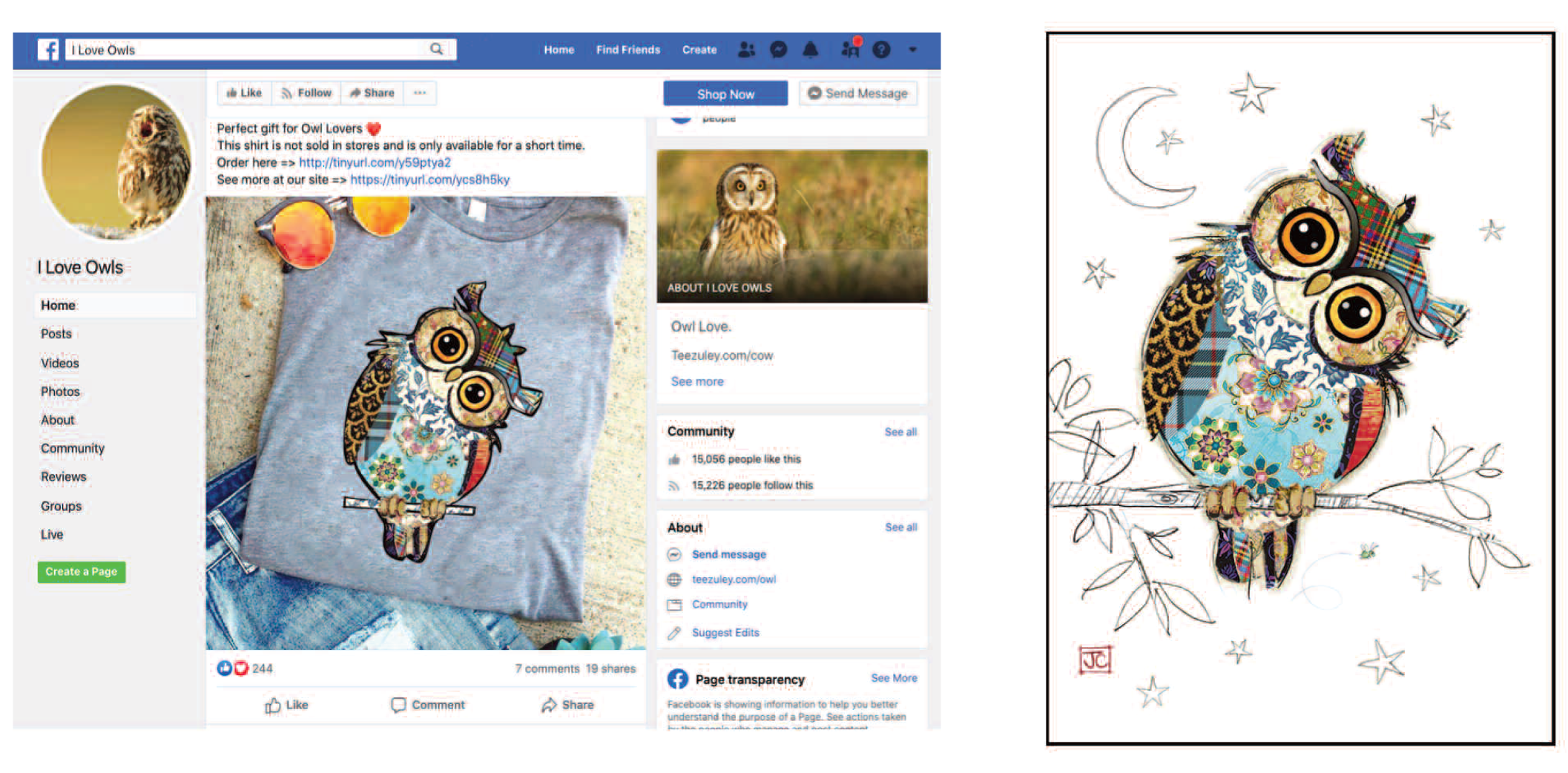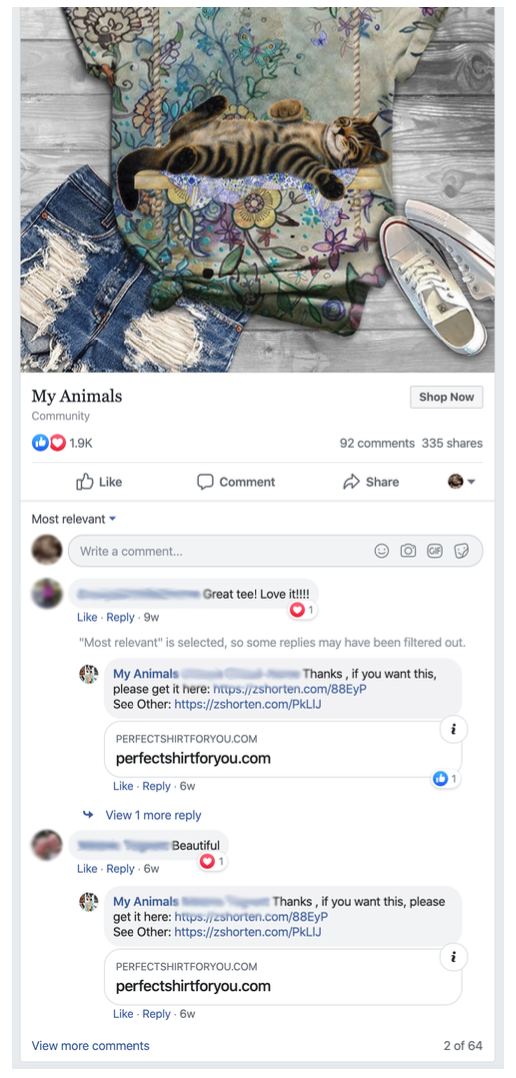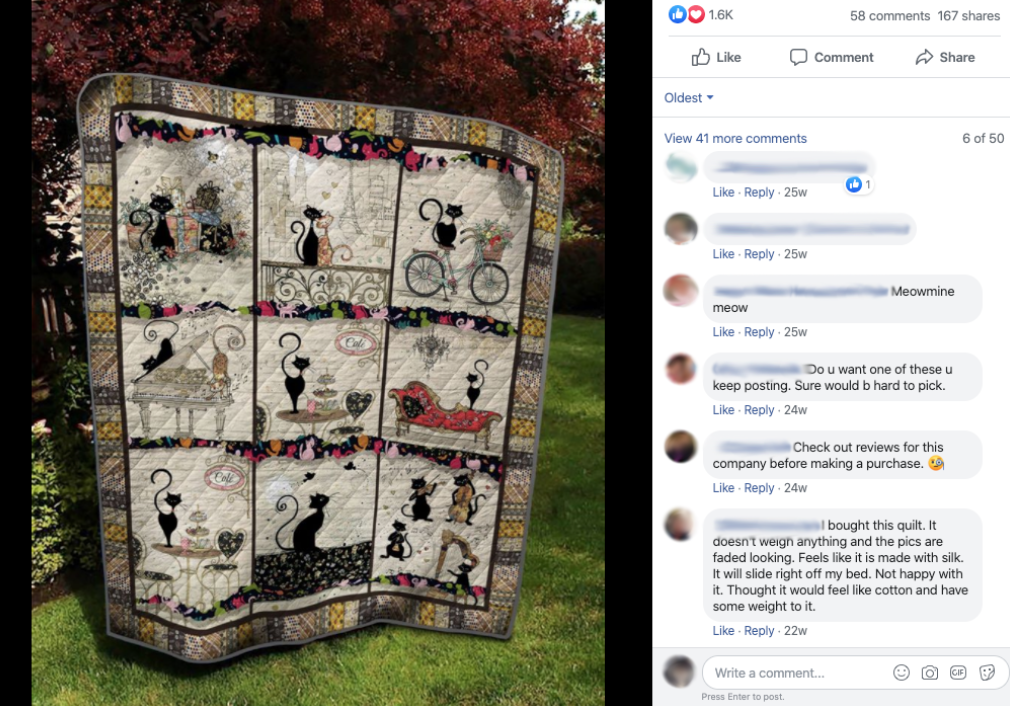“Social media has become the new shopfront for unscrupulous companies selling poor quality goods adorned with our industry’s stolen artwork,” states Mike Wright, studio manager of greeting card company Bug Art, having discovered how Facebook is now riddled with advertising from online T-shirt companies selling products featuring stolen designs from greeting card companies.
This comes two years after greeting card publisher Berni Parker took on the now defunct t-shirt printing website Gearpassio, with the help of the GCA and Briffa. Now though, the pernicious practice is back with a vengeance, with fake Facebook pages being set up to facilitate this widespread theft of greeting card artwork.

“They are getting away with stealing our industry’s carefully crafted artwork, and are expanding rapidly by moving onto a wide range of products including, phone cases, bags and giftware,” explains Mike.
In delving into this matter, Mike has found that majority of the Facebook pages which feature the stolen artwork are named with generic animal loving names such as, ‘Cat lovers’, ‘Cataholics’, ‘My Animals’, ‘PetLovers’, ‘I Love Owls’. “The pages are full of funny or cute animal pictures, attracting up to 20k followers. They are a guise for product stores full of stolen artwork. The adverts that they are publishing link you to different websites to buy these t-shirts. There are hundreds of these pages each linked to a t-shirt or product. teeonion.com, teeanimals.com, Gubico.com, Teezuley.com to name a few. Often, the advertised items cannot be found on their website by an organic search. They can only be seen when following the Facebook link,” relays Mike.

Many of the Facebook posts advertising these products receive thousands of likes, with hundreds of unsuspecting customers tagging and encouraging one another to place orders. Nearly all of the sites he has discovered are managed in Vietnam.
He explains that a lot of these sites are ‘Powered by TeeChip’ or ‘Powered by GearLaunch’. “TeeChip and GearLaunch are print-on-demand shops, they allow users to upload and market designs; when a customer places an order, the print-on-demand company arranges the printing, and the item is shipped to the customer via their website. The print-on-demand companies also offers users a fully integrated ecommerce platform, giving you the technology and ability to create your own webstore with no overhead, no inventory, and no risk. The print-on-demand company handle and supply it all. There is online evidence that the products produced are poor quality, the orders often don’t turn up and customer service is negligible.

TeeChip defends its business model and IP infringement by saying “TeeChip is a user-generated content service. The products available on TeeChip are designed, promoted, and offered for sale by users of our site, not by TeeChip itself.” Redbubble is another print-on-demand company, which has been taken to court over IP infringements. It also claims to have no responsibility for the goods it sells, and thus no liability for IP infringement. The courts agreed.”
Mike and his Bug Art colleagues have reported some of these pages and adverts to Facebook, but as Facebook remove one advert, it just reappears on another page.They then contacted a few of the websites to remove the images using the Bug Art artwork, and eventually the images were taken down. A few days after that though, the same images appeared on other pages and sites that follow the same formula. “There aren’t just a handful of these sites, there are hundreds, each with tens of thousands of products, making it unpoliceable from the artist’s or publisher’s side,” says Mike, frustrated by this theft from our industry and artists.

One problem with Facebook that Mike learned from artist Kim Hawkins, whose work for Tom Cat Cards has been used on these sites, is that “it doesn’t take editorial responsibility, and similarly Amazon doesn’t take responsibility for retailers selling illegal goods on its website. There are so many grey areas of legal responsibility (or lack of) in the digital world that don’t exist in the physical world. For example, a shopping mall owner would have to take some responsibility for allowing a shop to open selling, say, counterfeit medicines in the mall, but ‘retail platforms’ like Amazon only shut down sellers if the public report them. Similarly, a magazine wouldn’t print an advert for a company selling counterfeit goods, but Facebook doesn’t stop adverts for illegal things on its website.”

As Mike adds, “In the current digital climate, these websites are taking potential revenue away from card publishers, manufacturers and retail outlets making money for what are lawless businesses.”
“There needs to be a change to the law to make these print-on-demand companies liable for the products they are producing on behalf of the artwork thieves. £millions will have been made from selling millions of sub-standard products with impunity. A long-term solution has to be found to tackle this ongoing real threat to the creative and retail industries.”

Top: Mike Wright, Bug Art’s studio manager. Fighting IP infringement with his new colleague Harley the Beagle in their makeshift home studio.






















